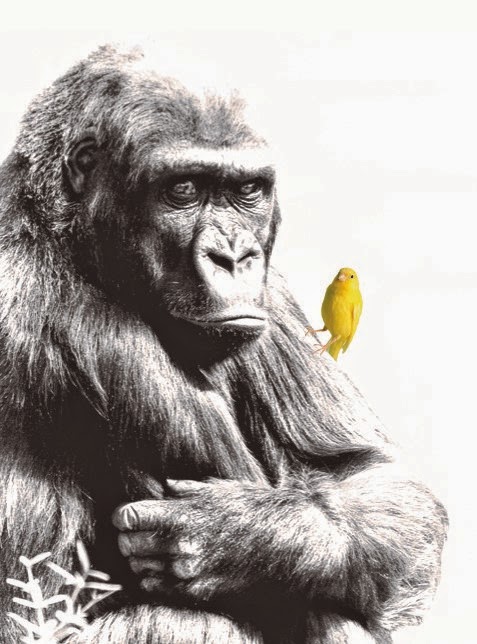This is a story about two companies, each sell similar
products and services. Both companies
have been around for many years and address a specific market niche. Each company has good products, loyal clients, and a high retention rate for repeat
sales. The gorilla has an aggressive marketing department. The canary is singing a song of warning.
The gorilla is pushing company leaders to
standardize on their products. The gorilla states they
are a very successful company that collects, stores, archives, analyzes, and
displays time series data. One person within the gorilla company claims they only make profit by
having little to no competition. They also shared that they have a decrepit code base, poor communication, no innovation, and overall the company is flat. This is proof that the gorilla will tell others, even inside their company, inaccurate information to make it seem like they are the only company in the market.
 In the great free enterprise system we are in, sometimes the
gorilla wins and sometimes the canary wins, all depending on which company best fits the needs
of the client. The canary gets
frustrated on projects when existing clients are blindsided with corporate standardization that has chosen the gorilla over the canary. The
client is upset because they had not been notified, by their corporate management, of any evaluation or were allowed input, but were told to accept the results after the fact. Now the client needs to move many years of data from the existing canary system to the new mandated gorilla system. Being under support, the process
can be done quickly with the canary tools at a minimal charge. When the roles are reversed, the gorilla needs
to be fed with a lot of lettuce to use his tools.
In the great free enterprise system we are in, sometimes the
gorilla wins and sometimes the canary wins, all depending on which company best fits the needs
of the client. The canary gets
frustrated on projects when existing clients are blindsided with corporate standardization that has chosen the gorilla over the canary. The
client is upset because they had not been notified, by their corporate management, of any evaluation or were allowed input, but were told to accept the results after the fact. Now the client needs to move many years of data from the existing canary system to the new mandated gorilla system. Being under support, the process
can be done quickly with the canary tools at a minimal charge. When the roles are reversed, the gorilla needs
to be fed with a lot of lettuce to use his tools.
Many companies are taking shortcuts and are not doing the
proper evaluation process to determine what is the best long-term
solution. The decision determines
direction for 10 years. Once it is made, it is hard to reverse or
admit it was a mistake. When a company decides to collect and utilize the value of historical data, do a full evaluation and focus on the important needs that are used daily. Don’t be
distracted by the minor one-time decisions or listen to misinformation, do your research. For instance, the gorilla claims to have many
direct connections that are more efficient than standard protocols. This may or
may not be true. Has anyone challenged this? The gorilla claims they have many analysis tools, but in reality, it is
their third-party partners that own these tools. These partners are not
treated as partners, as pricing information is withheld from them. The partner is forced to only sell
their part of the solution and not get anything for the total solution.
Don’t complain about the lettuce to feed the gorilla if you are not willing to make a change. Some companies make
the canary fly through hoops and the gorilla may come back with pricing
concessions. If you want competition in
the market place, it is there. Do the
proper evaluation; there are better companies and solutions available. Don’t believe everything the gorilla tells
you. Make the long-term decisions that
are best for your company, not what is comfortable for you for a short time.
In conclusion, bigger is not always better. The flexibility
and personalized support of smaller organizations can provide a lot of
value. It comes down to what your
preferences really are: the grunting of the gorilla demanding lots of lettuce or the sound of the canary singing a sweet melody of valuable solutions. The choice is up to you: let those who have ears hear.

.jpg)
.jpg)